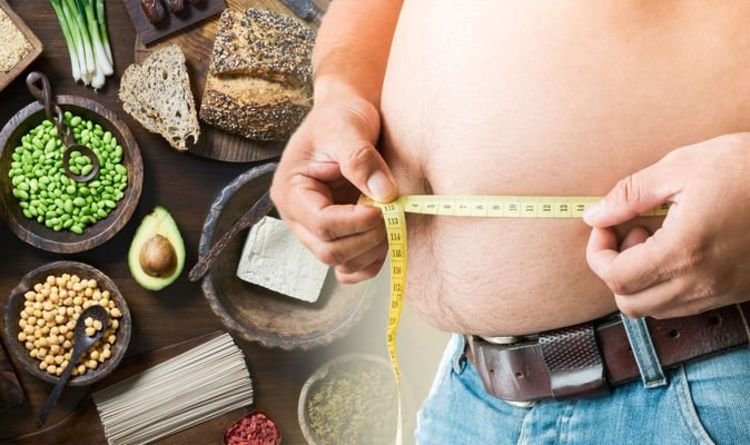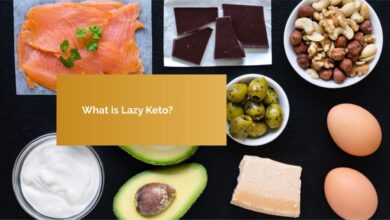
Finding the best weight loss diet for men is critical because men’s physiology, metabolism, and hormonal makeup differ significantly from women’s, impacting how calories burn and fat stores respond
Outline of the Blog Post:
- Introduction: Why the Best Weight Loss Diet for Men Matters
- Understanding Male Metabolism: What Makes It Different?
- Common Weight Loss Challenges Men Face
- Key Principles of Effective Weight Loss Diets for Men
- Top 5 Best Weight Loss Diets for Men in 2025
- The Keto Diet: Fat-Burning Powerhouse
- Intermittent Fasting: Eat Less, Burn More
- Mediterranean Diet: Heart-Healthy and Effective
- Low-Carb High-Protein Diet: Build Muscle, Lose Fat
- Plant-Based Diet: Lean and Clean Weight Loss
- How to Choose the Right Diet Based on Your Lifestyle
- The Role of Protein in Men’s Weight Loss Diets
- Importance of Healthy Fats and Carbohydrates
- How Exercise Enhances Diet Results for Men
- Supplements to Support Men’s Weight Loss Goals
- Tips for Sticking to Your Weight Loss Diet Without Losing Motivation
- Common Mistakes Men Make When Trying to Lose Weight
- Tracking Progress: Tools and Techniques for Men
- How to Avoid Weight Regain After Dieting
- Conclusion: Your Personalized Best Weight Loss Diet for Men
- FAQs
Best Weight Loss Diet for Men
Introduction: Why the Best Weight Loss Diet for Men Matters
Let’s face it: when it comes to losing weight, men and women are not created equal. Finding the best weight loss diet for men is critical because men’s physiology, metabolism, and hormonal makeup differ significantly from women’s, impacting how calories burn and fat stores respond. For men, diets that optimize testosterone levels, boost muscle retention, and reduce belly fat are essential. Without the right plan, many men struggle with stubborn abdominal fat, low energy, and frustrating plateaus despite effort.
Understanding Male Metabolism: What Makes It Different?
Men’s metabolism naturally differs from women’s due to a higher muscle mass percentage and distinct hormonal profiles, especially testosterone and growth hormone. This means men burn more calories at rest (higher basal metabolic rate), but also tend to store fat differently—typically around the midsection, which is linked to increased risk of cardiovascular disease and type 2 diabetes. As men age, testosterone levels decline, slowing metabolism and increasing fat gain. Thus, the best weight loss diet for men must include strategies to preserve or increase lean muscle mass, improve hormone balance, and promote sustained calorie burning. Diets rich in protein, healthy fats, and low in refined carbs are generally more effective for men’s unique metabolic needs.
Common Weight Loss Challenges Men Face
Despite often having a faster metabolism, many men hit frustrating weight loss plateaus. Challenges include hormonal imbalances like low testosterone, inaccurate calorie tracking, stress-related cortisol spikes, and a tendency to lose muscle along with fat. Additionally, busy work schedules, social drinking, and poor sleep habits contribute to weight gain. Many men also rely on crash diets that sacrifice muscle and leave them fatigued, making adherence difficult. Recognizing these hurdles is the first step to success. The best weight loss diets for men address these challenges by emphasizing muscle-preserving protein, balanced macros, stress reduction, and realistic calorie deficits, avoiding common pitfalls.
Key Principles of Effective Weight Loss Diets for Men
So what makes a weight loss diet truly effective for men? It comes down to several core principles. First, sufficient protein intake (1-1.5 grams per pound of lean body mass) is crucial to prevent muscle loss and maintain metabolic rate. Second, incorporating healthy fats supports hormone production, especially testosterone, which aids fat loss. Third, managing carbohydrate intake based on activity level helps regulate insulin and energy without excess fat storage. Fourth, creating a moderate calorie deficit (usually 15-25%) enables fat loss without sacrificing performance. Fifth, nutrient density is essential to support overall health and recovery. Lastly, flexibility and sustainability are key: the diet must fit the man’s lifestyle to ensure long-term adherence.
Top 5 Best Weight Loss Diets for Men
The Keto Diet: Fat-Burning Powerhouse
The ketogenic diet has gained massive popularity for its powerful fat-burning benefits. This high-fat, very low-carb diet forces the body into ketosis, a metabolic state where fat becomes the primary energy source instead of glucose. For men, keto is especially effective at targeting stubborn belly fat, improving insulin sensitivity, and supporting testosterone production. Many men experience appetite suppression on keto, which naturally reduces calorie intake. The diet emphasizes foods like fatty fish, avocados, nuts, seeds, eggs, and grass-fed meats while avoiding sugars, grains, and starchy vegetables.
However, keto requires careful planning to avoid nutrient deficiencies and can cause the “keto flu” in the first weeks. Pairing keto with strength training amplifies fat loss while preserving lean muscle mass. Research shows keto can reduce visceral fat and improve cardiovascular markers in men.
For a beginner’s guide, check out Healthline’s Keto Diet Guide for Men.
Intermittent Fasting: Eat Less, Burn More
Intermittent fasting (IF) is less about what you eat and more about when you eat. Popular IF protocols like 16:8 (16 hours fasting, 8 hours eating) or 5:2 (5 days normal eating, 2 days very low calories) create natural calorie deficits and improve hormone levels that support fat burning. For men, IF boosts testosterone, increases norepinephrine (a fat-burning hormone), and enhances cellular repair through autophagy.
Unlike restrictive diets, IF offers flexibility and is easier to maintain socially and professionally. It can be combined with any diet style—keto, Mediterranean, or low-carb—for enhanced results. Many men find IF reduces cravings, improves energy, and simplifies meal planning.
Learn more about intermittent fasting from James Clear’s Comprehensive IF Guide.
Mediterranean Diet: Heart-Healthy and Effective
The Mediterranean diet is rich in fruits, vegetables, whole grains, nuts, legumes, olive oil, and moderate lean proteins like fish and poultry. It’s less restrictive than keto or IF but still promotes steady, sustainable weight loss and improved cardiovascular health. Men following this diet experience reduced inflammation, better insulin sensitivity, and improved cholesterol profiles.
This diet’s moderate carbohydrate intake provides enough energy for active men, while healthy fats support hormonal health. It’s also sustainable long term and ideal for men seeking a balanced approach without extreme restrictions. Incorporate omega-3 rich fish, olive oil, and antioxidant-packed produce to maximize fat loss and heart health.
For more, see Mayo Clinic’s Mediterranean Diet Overview.
Low-Carb High-Protein Diet: Build Muscle, Lose Fat
A low-carb, high-protein diet combines the fat-burning benefits of carb reduction with muscle-preserving protein intake—critical for men aiming to lose fat while maintaining or building muscle. This diet includes lean meats, eggs, fish, low-carb vegetables, and limits sugars and starches. Protein keeps men fuller longer, reduces cravings, and increases thermogenesis (calorie burn from digestion).
This approach is particularly useful for men who lift weights or are physically active since it fuels muscle recovery without excess carb-induced fat storage. Including fiber-rich veggies and adequate hydration prevents digestive issues.
Plant-Based Diet: Lean and Clean Weight Loss
Plant-based diets emphasize whole, minimally processed plant foods like vegetables, fruits, legumes, nuts, and whole grains. For men, plant-based eating can promote fat loss by providing high fiber (which increases satiety), low calories, and antioxidants that reduce inflammation.
While some worry about protein adequacy, combining legumes, nuts, seeds, and grains provides all essential amino acids. Many men report improved digestion, better energy, and reduced chronic disease risk on plant-based diets. This diet also aligns with ethical and environmental goals.
To get started, read about plant-based protein sources for men.
How to Choose the Right Diet Based on Your Lifestyle
Choosing the best weight loss diet for men depends heavily on your lifestyle, preferences, and goals. Are you a busy executive with limited meal prep time? A weekend warrior athlete? Or someone managing health conditions like diabetes or heart disease? For instance, intermittent fasting suits men who prefer flexibility and less meal prepping. Keto is ideal if you want rapid fat loss and can plan meals meticulously. Mediterranean suits men wanting heart health and steady results without extreme restrictions. Consider your work hours, social life, cooking skills, and energy needs before committing.
Remember: the best diet is the one you can follow consistently.
The Role of Protein in Men’s Weight Loss Diets
Protein is the cornerstone of fat loss for men. It increases satiety, raises metabolism through the thermic effect of food, and preserves muscle mass during calorie deficits. Men aiming to lose weight should consume about 1 to 1.5 grams of protein per pound of lean body mass. Good protein sources include lean chicken, turkey, fish, eggs, Greek yogurt, and protein powders. Protein also helps regulate hunger hormones like ghrelin and leptin, making it easier to maintain calorie control. Don’t neglect protein quality—choose complete proteins or combine plant proteins to meet amino acid needs.
Importance of Healthy Fats and Carbohydrates
Healthy fats like monounsaturated and omega-3 fatty acids play a crucial role in hormone synthesis, especially testosterone, essential for fat loss and muscle building. Sources include olive oil, avocados, nuts, seeds, and fatty fish. Avoid trans fats and excessive saturated fats.
Carbohydrates provide energy but quality matters. Choose whole grains, vegetables, and fruits that have low glycemic indexes to avoid insulin spikes and fat storage. Carb timing around workouts can optimize energy and recovery without interfering with fat loss.
How Exercise Enhances Diet Results for Men
Exercise is the perfect partner to any diet. Strength training increases muscle mass, boosting basal metabolic rate and promoting fat loss. Compound movements like squats, deadlifts, and presses recruit multiple muscles, maximizing calorie burn. Cardiovascular training, including HIIT, enhances cardiovascular health and fat oxidation. For men, exercise also helps regulate hormones like testosterone and cortisol, improving mood and energy. Combine resistance and cardio for the best results.
Supplements to Support Men’s Weight Loss Goals
While whole foods are the priority, some supplements can complement weight loss efforts. Whey protein aids muscle repair and satiety. Fish oil supports hormone production and reduces inflammation. Vitamin D is critical for testosterone and energy. Green tea extract and caffeine may boost metabolism and fat oxidation. Always consult a healthcare provider before starting supplements.
Tips for Sticking to Your Weight Loss Diet Without Losing Motivation
Weight loss success depends more on consistency than perfection. Set SMART goals, plan meals in advance, keep healthy snacks on hand, find social support or a workout buddy, and track progress visually with photos or measurements. Celebrate small wins and allow occasional treats to prevent feelings of deprivation. Remember, setbacks happen—what matters is getting back on track.
Common Mistakes Men Make When Trying to Lose Weight
Many men make these mistakes that sabotage fat loss: overestimating exercise calorie burn, skipping meals leading to overeating later, neglecting sleep which impacts hormones, relying on fad diets or supplements without solid nutrition, and ignoring stress management. Avoid these pitfalls by adopting balanced eating, prioritizing rest, managing stress, and following evidence-based diets.
Tracking Progress: Tools and Techniques for Men
Tracking is a powerful motivator. Use apps like MyFitnessPal or Lose It to log food and calories. Wearables like Fitbit or Apple Watch monitor activity and heart rate. Track body weight weekly, measure waist circumference monthly, and note how clothes fit. Photos provide visual proof of progress. Tracking helps adjust diet or exercise plans before plateaus occur.(Weight Loss Diet)
How to Avoid Weight Regain After Dieting
Weight regain is a common problem, often caused by returning to old habits or extreme calorie restriction. Prevent rebound weight gain by adopting sustainable eating habits, staying active, and practicing mindful eating. Incorporate maintenance phases after reaching goals and allow flexibility to avoid bingeing. Long-term lifestyle changes beat short-term diets every time.
Read Also How Men Can Lose Belly Fat Fast: The Ultimate Guide to a Slimmer Waistline
Conclusion: Your Personalized Best Weight Loss Diet for Men
In the end, the best weight loss diet for men is one that aligns with your metabolism, hormonal health, lifestyle, and preferences. Whether you choose the rapid fat-burning keto diet, the flexible intermittent fasting, the heart-healthy Mediterranean, or a plant-based approach, consistency, nutrient quality, and muscle preservation are the keys. Pair your diet with strength training, track progress, and be patient. Fat loss is a journey, not a sprint. Start today, and take control of your health for years to come.(Weight Loss Diet)
FAQs
1. What is the fastest weight loss diet for men?
The ketogenic diet and intermittent fasting generally provide the fastest fat loss results by enhancing fat metabolism and suppressing appetite, but individual results vary. Sustainability matters most.
2. Can men lose weight without exercise?
Yes, diet is the primary factor in weight loss, but exercise helps preserve muscle mass, boosts metabolism, and improves health outcomes.
3. How much protein should men eat to lose weight?
Men should aim for about 1 to 1.5 grams of protein per pound of lean body mass daily to maintain muscle while in a calorie deficit.
4. Is intermittent fasting safe for all men?
Intermittent fasting is safe for most men but may not be suitable for those with diabetes, low blood pressure, or specific medical conditions. Consult your doctor.
5. Can a plant-based diet provide enough protein for men?
Absolutely! Combining legumes, grains, nuts, and seeds can provide all essential amino acids for muscle maintenance and fat loss.(Weight Loss Diet)







One Comment